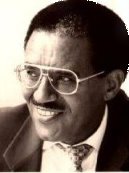
| Issue 16: May 2002 |
Revamp system of dealing with global problems – report
With a proliferation of more than 500 international agreements and institutions now working to address environmental issues worldwide, the way the world responds to problems affecting the health of the planet needs to be revamped, according to a new two-year study released by the United Nations University.
|
|
More research needed on crop yield, says new study
While commercial proponents stress the potential contribution of genetically modified (GM) plants in “feeding the world,” only about one-quarter of field tests in the US and 12.5 per cent in the European Union relate directly to crop yield, according to an analysis by the UN University Institute for New Technologies.
Staff prepare for move to new building
Staff at UNU Leadership Academy are preparing for an end-of-year move to their new permanent building now under construction in Amman, Jordan.
Disarmament impasse "about politics not guns"
A new report on negotiations over decommissioning armaments in Northern Ireland suggests that the wrangling was about attitudes and political positioning, not about guns.
Fellowship programme extended five years
UN University and the Kirin Brewery Company have agreed to extend the UNU-Kirin Fellowship Programme for a third five-year term starting next year.
New web sites launched on climate, aresnic projects
UN University's Environment and Sustainable Development Programme has launched new websites for the Climate Affairs Capacity Building Programme and a project to address arsenic contamination in the Asian Region. MORE
Staff attend conflict resolution workshop in Nigeria
Two senior academics from UNU Institute for Conflict Resolution have been working with Nigerian universities to develop conflict resolution programmes that will tackle the country's growing ethnic and religious violence. MORE
Rector co-chairs roundtable on education and development
UN University Rector Prof. Hans van Ginkel was one of the co-chairs when leading education experts joined Education Ministers and Ambassadors to the Economic and Social Council (ECOSOC) in a round table discussion on "Education and Development" at UN Headquarters in New York. MORE
Experts discuss agrochemicals link with coastal EDC pollution
Experts from East Asia and around the world convened in Hanoi April 15-16 to discuss the role of agrochemical use in East Asian coastal pollution by endocrine disrupting chemicals (EDCs).
Farming and biodiversity focus of fourth PLEC annual meeting
Working with Farmers for the Cultivation of Biodiversity while Improving Livelihoods will be the theme of the fourth general meeting of UN University's Project on People, Land Management and Environmental Change (UNU/PLEC) to be held at Columbia University, New York, April 23-27.
Cross border movement of people topic for Shonan Session
Cross-Border Movement of People will be the theme of the UNU Global Seminar – 18th Shonan Session to be held September 2-6 at Shonan Village in Hayama, Kanagawa-ken, Japan.
New book proposes antidote for humanitarian emergencies
A new book to be launched in New York this month emphasizes long-term development policies as an antidote to humanitarian disasters in the developing world.
Kyoto Protocol focus of second roundtable
Problems and issues associated with implementation of the Kyoto Protocol on Climate Change will be highlighted when UNU Institute of Advanced Studies (UNU/IAS) hosts its second sustainable development roundtable in Tokyo May 9.
The role of nuclear weapons is deterrence
How do we justify the paradox of using a weapon of mass destruction to stop others from acquiring them?
